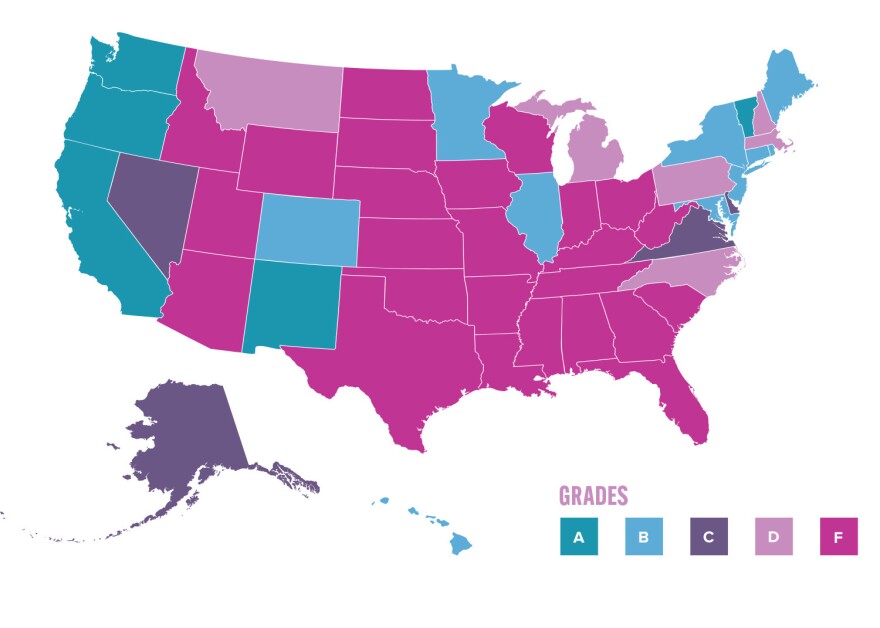Nevada received a C+ in a national report on reproductive health care policy, while state lawmakers are presenting a number of bills aimed at increasing access.
The rePROs Fight Back 50-State Report Card looks at three main pillars: prevention, such as access to sex education and emergency contraceptives, affordability, and access. Thirty-one states received a D or F grade.
Director and lead author Jennie Wetter said Nevada took a big hit because of its sex ed curriculum. While it is mandated in public schools, there is no requirement to teach about birth control.
“But it does make sure that it’s medically accurate, which is really important,” Wetter said.
She said it’s all connected to reproductive health care.
“If you don’t get good sex ed, you will have a hard time making healthy decisions later in your life,” Wetter said. “You can’t access services if you can’t afford them, or you don’t know they exist. And you can’t access services if the state is putting barriers in your way. Your ability to exercise your sexual and reproductive health and rights absolutely depends on where you live.”
In the last legislative session, a bill to switch sex education from opt-in to opt-out failed to get approval from both chambers. Assemblymember Selena Torres-Fossett said a similar bill has been introduced.

“Ultimately, here in the state of Nevada, this is also a conversation happening at a district level and one that we continue to support,” Torres-Fossett said.
Just this week, lawmakers have presented several bills aimed at increasing access to reproductive health care and protecting providers.
Torres-Fossett presented legislation on Wednesday that prohibits government entities, excluding schools, from creating substantial burdens to accessing reproductive health care, specifically contraception.
Additionally, Assemblymember Sandra Jauregui introduced a bill that would make it so prescriptions for terminating pregnancies and miscarriage management include the name of the health care practice, not the practitioner. She said reproductive health care providers are facing violence.

“This is about protecting access to care when providers feel unsafe." Jauregui said. "When clinics are targeted, and when privacy is compromised, access to care disappears."
A similar bill would allow reproductive health care providers to hide their home addresses from certain places, like county assessor records. The opposition argued that it should be expanded to anti-abortion activists too and these types of bills decrease transparency.
On Thursday, lawmakers will also hear legislation aimed at increasing protections for patients and providers of assisted reproductive technologies like IVF and making treatment more affordable by expanding insurance coverage.
The Democrats have urged their Republican colleagues to stand with them on these issues.



